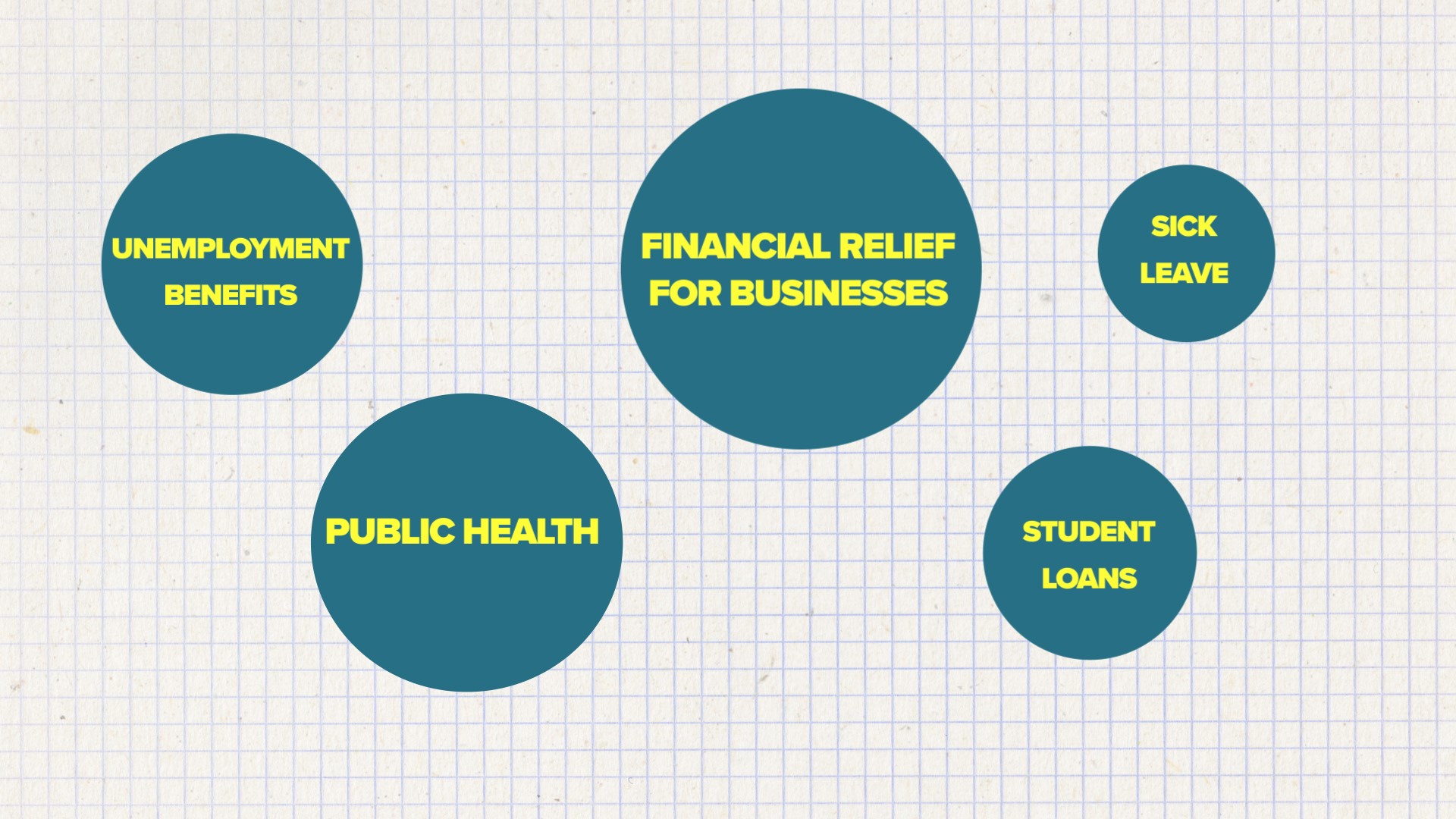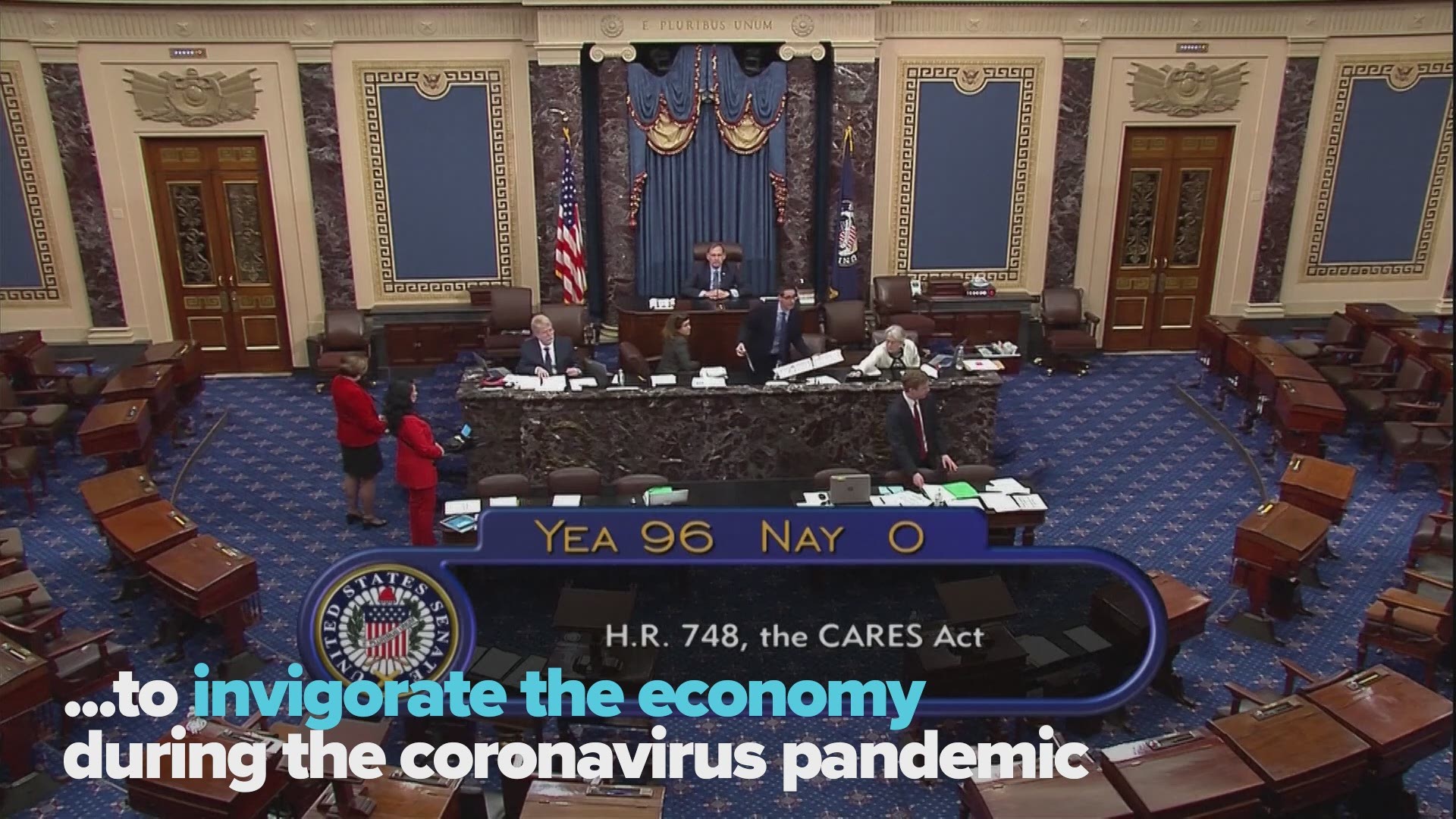WASHINGTON —
You've likely heard a lot about the $1,200 stimulus checks that are part of the massive coronavirus economic relief package.
But there is a whole lot more inside the $2.2 trillion measure, officially known as the CARES Act.
Here are five things in it for you besides the stimulus check.
Public health
First and foremost, the CARES Act will provide more than $153 billion to public health. This includes $100 billion to hospitals overwhelmed with an influx of coronavirus patients. It also requires all private insurance plans to cover COVID-19 treatments and all coronavirus tests.
Student loans
For people struggling to pay off their student loans, the CARES Act allows you to suspend federal student loan payments for six months until the end of September and waives student loan interest on those federal loans as well for that time period.
It also allows employers to contribute up to $5,250 annually tax-free toward their employees’ student loan debt till January 1st, 2021.
Help for small and big businesses
Companies are seeing a big drop in business caused by the pandemic and we’ve seen a record number of Americans filing for unemployment benefits in the past few weeks. The CARES Act will provide tax credits and emergency funds to businesses, small and big alike, to help them stay afloat and keep workers on the payroll. It also offers an incentive for employers to not lay off workers by promising loan forgiveness.
If you get laid off
For people who are laid off, the stimulus package also includes a dramatic expansion of unemployment insurance benefits, covering more workers who are normally left out, like part-time, self-employed or gig economy workers.
The stimulus package offers a weekly benefit increase of $600 for four months, on top of what a person would typically get for unemployment.
It also extends unemployment coverage an extra 13 weeks for people who have exhausted existing benefits.
Sick leave
And don’t forget that the CARES Act requires most businesses with under 500 employees to provide two weeks of paid sick leave to employees who are unable to work because of the coronavirus. Employees affected by the coronavirus will also be eligible for up to three months of paid family and medical leave.
Hopefully, these measures will ease the financial pain caused by the pandemic and help hospitals that are overwhelmed with patients.


